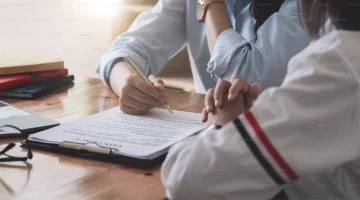Is Taking Out a Loan to Pay Your Debt Worth It?
Borrowing money to pay debts you can not afford to pay is typically never a good idea. In most cases, you simply transfer debt that you can not pay from one creditor to another creditor without addressing the underlying financial problem.
In the process, you could make your financial situation worse.
Of course, there are some exceptions to the rule. There could be a few instances in which a person might want to take out a loan to pay debt.
However, before doing anything, you may want to discuss your financial situation with a bankruptcy attorney just to ensure that you are making a decision that is in your best interest in the long run.
Let’s examine a few situations in which people commonly incur debt to pay debt.
Reverse Mortgages
Seniors who own equity in their home can access the equity to pay debts and living expenses through a reverse mortgage. With a reverse mortgage, the homeowner receives periodic or lump sum payments from a lender based on the equity in the home. The loan becomes due when the homeowner passes away or the property is sold.
While a reverse mortgage may provide income for some individuals who need money to pay living expenses, it may not be the best solution to a debt problem. In a bankruptcy case, the equity in the home is typically protected from creditors. Therefore, a homeowner may get rid of debts he or she cannot pay while retaining the equity in the home.
Low Interest or No Interest Credit Cards
If you receive an offer for a low interest or no interest credit card, transferring balances from credit cards with higher interest rates can save money and help you pay down debt faster. However, you must be able to pay the debt. If not, you are not resolving your debt problem. A Chapter 7 bankruptcy case might wipe out the credit card debt without any further payments.
Debts That May Not Be Discharged in Bankruptcy
Most tax debts are not dischargeable in a bankruptcy case. Alimony, child support, student loans, and some personal judgments may not be dischargeable in a bankruptcy case. It may appear that you have no choice but to borrow money to pay these debts. However, in a Chapter 13 bankruptcy case, you may have up to 60 months to pay these debts in full through a repayment plan without incurring additional interest or penalties. Chapter 13 may be preferable to borrowing money to pay non-dischargeable debts.
Reasons Why You Should Consider a Bankruptcy Instead of Borrowing Money
Before you apply for a new loan or incur more debt, you should discuss your financial situation with a bankruptcy lawyer if:
- Your income has been reduced permanently, such as in the case of disability;
- You cannot afford to pay your debts after you pay your living expenses;
- You are using credit cards to pay normal living expenses;
- You are facing a foreclosure, repossession, wage garnishment, or debt collection lawsuit;
- You are selling property to make ends meet;
- The interest rate on new loans is higher than the interest rate on your current loans; or,
- You do not owe the money claimed.
About the Author:

John J Scura III, Esq.
Partner, Scura, Wigfield, Heyer, Stevens & Cammarota, LLP
John has been Certified by The Supreme Court of New Jersey as a Civil Trial Attorney. Whether it is a personal injury case, bankruptcy case, litigation case or other type of matter, John wants his clients to participate in the decision making process toward solving their problem in the best way possible.
More to Read:
Previous Posts:








